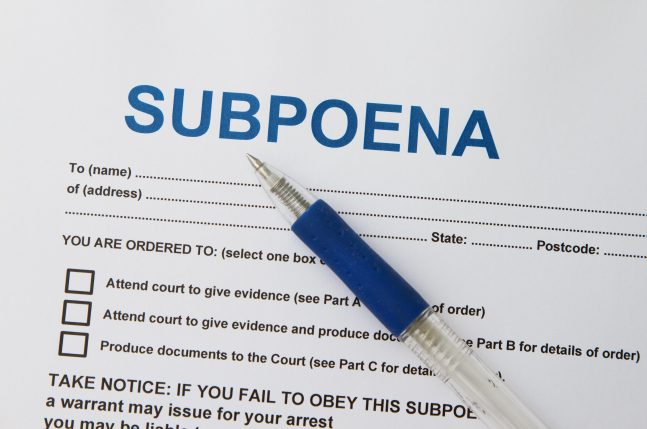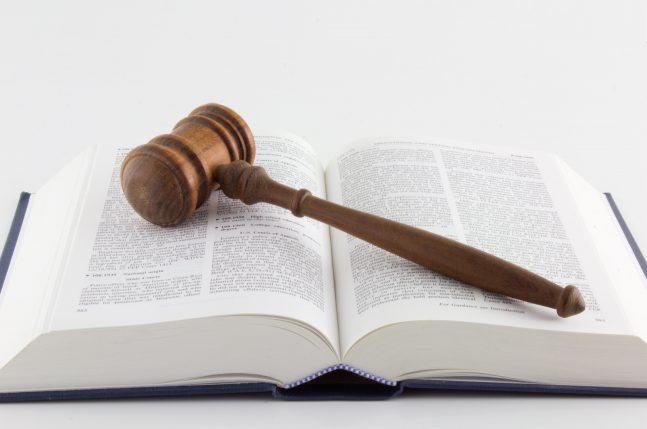Court Disputes Articles
Mutual Trust and Confidence in the Employment Contract
March 12th, 2014 by | Court Disputes, Employment
In a decision of the Federal Court of Australia on 6 August 2013 (Commonwealth Bank of Australia v Barker [2013] FCAFC 83) the majority stated that an implied contractual term of mutual trust and confidence was part of the law of contract in Australia. A contract is a legal bargain between parties that has various… Read more »
Compensation for Employment Unfair Dismissal
March 12th, 2014 by | Court Disputes, Employment
If an employee is found to have been unfairly dismissed, the Fair Work Act 2009 empowers the Fair Work Commission to award compensation, if reinstatement is inappropriate (as it almost always is) and if compensation is appropriate in the circumstances. The maximum amount is set as the highest amount earned or which the dismissed employee… Read more »
Contract by (Unilateral) Mistake
February 11th, 2014 by | Court Disputes
Courts can set aside contracts on a number of grounds: the terms may be illegal, a party may have entered into the deal through fraud or misrepresentation, and so on. Sometimes the Court will intervene where there has been a mutual, fundamental mistake or misunderstanding. In some circumstances the Court can also correct Contracts. But… Read more »
Winding up a Partnership: Considerations for the Disenchanted
December 16th, 2013 by | Business Sale & Purchase, Commercial Transactions, Court Disputes
People carrying on business in common for profit are in Partnership. It is an old and historically successful business model, although more businesses today incorporate as a limited liability corporation. The unwritten essence of a partnership is trust between partners and when trust no longer remains, the end of a partnership becomes a real possibility. A… Read more »
Receiving a Court Subpoena
October 31st, 2013 by | Court Disputes
When someone can testify as a witness or has documents relevant to a legal action, a party can ask the Court to issue them with a subpoena. This is a Court order for them to attend Court at a certain time and provide relevant evidence. A subpoena can be to testify personally (subpoena ad testificandum)… Read more »
“We Won’t Go To Court” Arbitration Clauses
October 17th, 2013 by | Commercial Transactions, Court Disputes
A familiar term of many contracts is what lawyers call a “Scott v Avery” (Scott v Avery (1856) 5 HLC 811) clause. This is a clause saying the parties to the contract, who have a dispute arising from the contract, agree in advance that neither will bring an action in Court until arbitration has been… Read more »
Can Courts Correct Contracts?
October 9th, 2013 by | Commercial Transactions, Court Disputes
While the Courts won’t re-draw a legal document to improve it, they will, in certain cases, correct the document (“rectification”) if it clearly doesn’t set out what was intended. This power exists in relation to a range of legal documents, some only of which are mentioned here. Contracts If the contracting parties agreed to something… Read more »
Untrustworthy Trustees
September 12th, 2013 by | Commercial Transactions, Court Disputes, Wills & Estate Planning
Trusts are appropriate legal structures in many circumstances. However even a well thought out trust structure supported by an excellent trust deed will fail the settlor’s aims if the trustee is untrustworthy. What is a Trust? A Trust is an arrangement where X holds or controls property for Y. In this case X… Read more »
How to Deal With a Statutory Demand
July 29th, 2013 by | Court Disputes, Debt Collection
The Corporations Act allows a creditor to issue a statutory demand to a corporate debtor. It is an extremely effective debt collection process where there is no dispute (other than payment). The golden rule is to deal with a statutory demand immediately. We often receive cries for help after a failure to address the… Read more »
Tendered in Full Satisfaction
July 19th, 2013 by | Court Disputes, Debt Collection
In business, you may receive a cheque that is short of the amount you invoiced, with an accompanying note stating words to the effect “this amount is tendered in full and final satisfaction of your invoice numbered…” The suggestion is that by accepting the lesser amount in these circumstances, you ‘waive’ the rest or agree… Read more »
Getting Your Money Back When It’s Your Fault You Lost It
June 29th, 2013 by | Court Disputes, Debt Collection
The law can help you in a number of ways when your rights have been violated. When, for example, you pay for something and don’t get it delivered as agreed, or it isn’t what was agreed, or it is broken, you have contractual and statutory rights. But what about a case where you have no… Read more »
Court Pre-Action Investigations
June 21st, 2013 by | Court Disputes
What if you know someone has (or may have) done you (legal) harm but you don’t know what or who? There may be instances where you either do not know who to sue or whether you have a proper cause to sue. In such cases, the Law may allow you to seek information from a… Read more »
How to Keep Your Legal Costs to a Minimum
June 14th, 2013 by | Court Disputes, Debt Collection, Injury Compensation Claims
If you need to engage a lawyer you will be concerned about the cost. Don’t be embarrassed – the likely cost of your matter is something that should be discussed up front. It is important to you and needs to be carefully considered as part of your decision to proceed. Sometimes it is… Read more »
Ordered to Pay Legal Costs
June 1st, 2013 by | Court Disputes, Debt Collection, Injury Compensation Claims
Sometimes one party to a Court action will be ordered to pay (all or part of) the other party’s legal costs. This might be at an interlocutory hearing (a court process along the way to the resolution of a matter) or at trial (when the matter is finalised by the Court). Sometimes a party may… Read more »
Magistrates Court Increases Claims Limits
February 13th, 2013 by | Court Disputes, Debt Collection
The Statutes Amendment (Courts Efficiency Reforms) Act 2012 (No 43 of 2012) has passed and brings substantial changes to commercial litigation in SA when it commences effect on 1 July 2013. Some major reforms are: “Small claims” (disputes without legal representation in Court) limits go from $6,000 to $25,000; The limit on general civil claims… Read more »


















